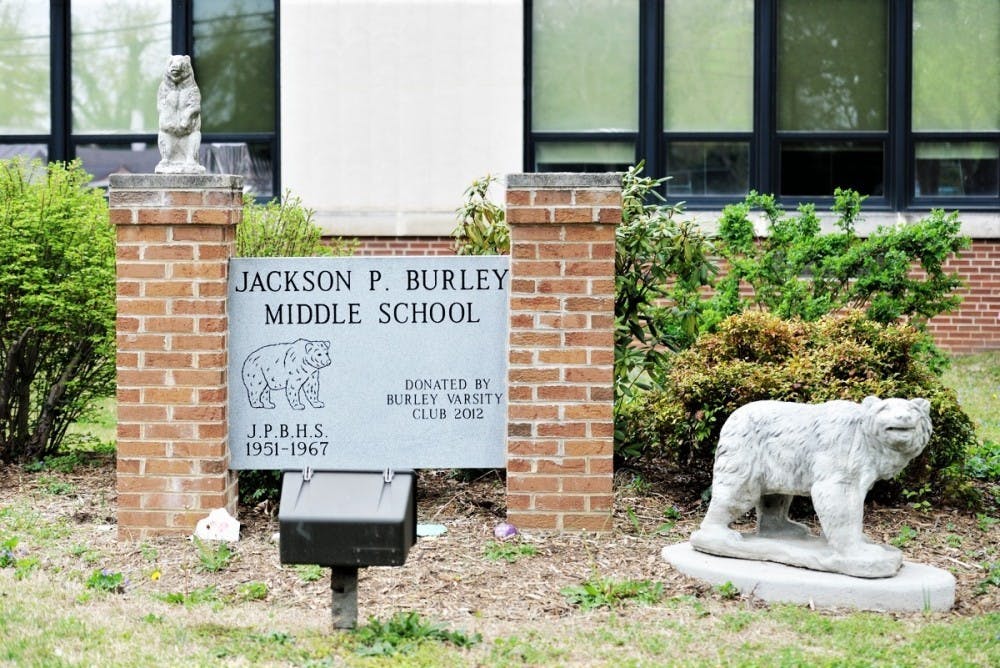Over the past few weeks, Democrats from across Virginia’s fifth congressional district came together to select the party’s standard-bearer for the general election against incumbent Rep. Tom Garrett (R-Va.). In February, local party leaders decided to hold a convention to select the Democratic nominee, with attending delegates to be elected by a series of caucuses across the district. Why party leaders decided to hold these caucuses rather than a standard primary is still somewhat of a mystery. What should be clear, however, is that the decision to hold caucuses was a mistake — both an undemocratic exercise and a missed opportunity.
Caucuses are voter suppression. That much was abundantly clear to anyone who stood in the line that wrapped around Burley Middle School last Saturday afternoon, where the Charlottesville caucus was held. Caucuses are by design less accessible than primaries. They compress what would otherwise be a full 11-hour window for voting into an hour-long event — not including time spent waiting in line. Furthermore, most caucuses do not allow absentee or write in ballots, which are bastions of voter accessibility, especially for disabled and working class voters. With that in mind, the fact that turnout in the fifth district plummeted should come at no surprise. This year, turnout for caucuses in both Charlottesville and Albemarle plummeted to less than 10 percent of 2017 gubernatorial primary levels. Under any other circumstances, this absolute decimation of voter turnout would be subject to investigation and public outcry. Instead, hardly anyone took notice — it was par for the course.
As I waited in line and griped out loud at the Charlottesville caucus, a person behind me interjected, remarking that he didn’t think the process was so bad — “At least it inconveniences everyone equally.” A glaring problem with caucuses, however, is that is simply not the case. While data for the recent fifth district caucuses is lacking, past research shows that on the whole, caucuses disenfranchise minority and low-income voters at significantly higher rates than primaries. Ironically enough, these groups are the very same constituencies on which Democrats consistently rely in general elections. Rather than chiding these voters when they don’t turn out to vote — as was common in the aftermath of the 2016 election — Democrats should reflect on how their own internal procedures systematically disregard and disenfranchise their voices.
The process that unfolded over the last week is so maddening not because of its undemocratic nature, but rather because of the profound hypocrisy it represents. Democrats consistently attack Republicans for their efforts to restrict voter access, and yet it seems they can’t hold themselves to the same standard. Democrats are ostensibly the party of voter access, so it is doubly frustrating to see the local leadership disenfranchise voters. The effects of caucuses are common knowledge, yet the local party leadership decided to hold them anyway, eliminating any veneer of authenticity they might’ve touted when it comes to the issue of voter access.
What is particularly frustrating about the nomination process is that it represents a missed opportunity. Precisely because of its situation as a non-governmental entity, the local Democratic party could have set an example for what true voter accessibility looks like. The party has extensive latitude over the process through which it selects its nominees, and it’s a shame that it decided to forego leveraging that power. In reality, it’s not caucuses themselves that are the problem, rather it is the party-determined rules that constrain them. Imagine if the fifth district committee decided to hold an unassembled caucus over a full day, complete with ranked choice voting and absentee balloting. The party could have made a statement, demonstrating a tangible vision for what a truly representative democratic process looks like. There are so many ways the status quo could be improved, and it is disheartening to see the party knowingly move in the wrong direction.
Although the caucuses have already run their course, it is still worth noting how the process could be reformed. In the future, the party should think purposefully about what message it sends when it decides to hold caucuses. Rather than vacuously pandering to low-income and minority voters, Democrats should seek to actively remove barriers to engagement in the primary process. Further, it’s not enough to attack Republicans for dismantling voting rights, or talk in platitudes about increasing accessibility. If Democrats claim to be the party of voter access, they should put their money where their mouth is and actively pursue ways to make their elections more accessible. The fifth district leadership, and Democrats in general, must do better.
Brendan Novak is an Opinion Editor at The Cavalier Daily. He can be reached at b.novak@opinion.com.






